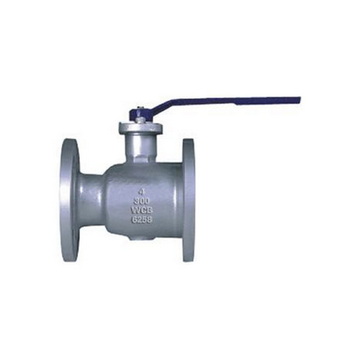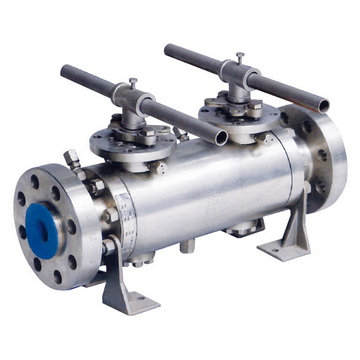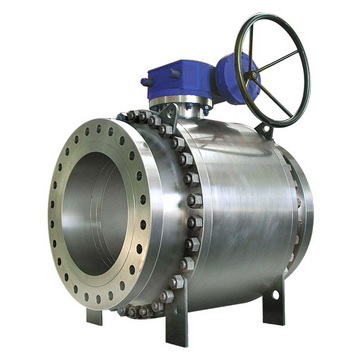Top Metal Seated Ball Valve Manufacturers and Suppliers in Russia
Content Menu
● What Are Metal Seated Ball Valves?
● Leading Metal Seated Ball Valve Manufacturers and Suppliers in Russia
>> QL - Russia Standard GOST LTCS Trunnion Mounted Ball Valve Manufacturer
>> Win Valve - Russian Manufacturer Specializing in Ball Valves
>> RKSfluid - Chinese Manufacturer with Russian Market Presence
● Applications of Metal Seated Ball Valves in Russia
● Technical Advantages of Metal Seated Ball Valves
● Manufacturing and Quality Assurance
● Enhancing Valve Performance with Modern Technologies
● Environmental and Safety Considerations
● FAQ
>> 1. What industries in Russia most commonly use metal seated ball valves?
>> 2. How do metal seated ball valves differ from soft seated ball valves?
>> 3. Are Russian metal seated ball valves compliant with international standards?
>> 4. What materials are commonly used for metal seated ball valves in Russia?
>> 5. Can metal seated ball valves be automated?
Metal seated ball valves are critical components in various high-demand industries such as oil and gas, petrochemical, marine, and water treatment. They offer superior durability and sealing capabilities compared to soft-seated valves, especially in harsh environments involving high temperatures, abrasive media, and corrosive fluids. In Russia, the demand for metal seated ball valves continues to grow due to the country's extensive energy sector and industrial infrastructure. This article explores the top metal seated ball valve manufacturers and suppliers operating in Russia, highlighting their products, industry applications, and capabilities.

What Are Metal Seated Ball Valves?
Metal seated ball valves use seats made from hard metals such as stainless steel, tungsten carbide, stellite, or other alloys instead of softer materials like PTFE. This design enables the valve to withstand higher pressures and temperatures, resist erosion, and maintain tight shutoff in demanding service conditions. Such valves are often used in:
- Oil and gas upstream, midstream, and downstream applications
- Offshore drilling platforms and subsea installations
- Seawater desalination plants
- Chemical processing and refinery operations
Metal seats provide enhanced durability and longevity, making these valves ideal for abrasive or erosive media, high-cycle operations, and systems where leakage prevention is critical.
Leading Metal Seated Ball Valve Manufacturers and Suppliers in Russia
QL - Russia Standard GOST LTCS Trunnion Mounted Ball Valve Manufacturer
QL is a notable manufacturer supplying a wide range of trunnion mounted metal seated ball valves meeting the Russian GOST standards. Their valves feature forged steel bodies with metal seats designed for zero leakage applications under stringent Russian certification requirements. QL offers various operational modes including gear drive, electric, and pneumatic actuation, tailored for the oil and gas market.
Key features include compliance with GOST 33259 flange end standards, body materials such as carbon steel grade Stal 20 and 20L suitable for -40 to 450°C, and metal seats that provide reliability in high temperature and particle-laden service environments. They also provide customized valve markings and documentation to meet Russian regulations.
Win Valve - Russian Manufacturer Specializing in Ball Valves
Win Valve is a renowned Russian company manufacturing ball valves including metal seated variants designed according to ISO 17292 and API 6D standards. Their product line includes trunnion mounted ball valves suitable for pressure ratings up to Class 1500 and bore sizes up to DN500. Win Valve focuses on supplying robust valves for harsh oil and gas operations with performance-tested metal seats and durable construction materials such as ASTM A216 WCB cast carbon steel.
The company emphasizes durability and performance testing to ensure their valves meet the stringent needs of Russia's demanding industrial sectors.
RKSfluid - Chinese Manufacturer with Russian Market Presence
Though based in China, RKSfluid has established a strong presence in the Russian market by supplying metal seated ball valves extensively used in Russia and worldwide. Their product portfolio includes floating, trunnion mounted, and metal seated ball valves compliant with API 6D, ASME, and DIN standards. RKSfluid prioritizes precision manufacturing with CNC machining and rigorous quality control to meet the needs of oil, gas, chemical, and water industries.
Common materials include A105, WCB, CF8, CF8M, and 316 stainless steel. The valves cover pressure classes from 150LB to 600LB and sizes ranging from 1/2” to 12” (DN15-DN300), providing versatile solutions for water, oil, gas, and corrosive mediums.
Applications of Metal Seated Ball Valves in Russia
Russia's vast industrial landscape demands reliable flow control equipment that can withstand severe operating conditions. Metal seated ball valves have become indispensable in several key sectors:
- Oil and Gas Industry: Russia's extensive oil and gas operations, including drilling platforms, pipelines, and refineries, require valves that can tolerate abrasive sands, high pressures, corrosive hydrocarbons, and extreme temperatures. Metal seated ball valves provide the toughness and leak-tight performance needed in these environments, reducing downtime and maintenance costs.
- Marine and Offshore Platforms: Offshore drilling platforms operating in Russia face harsh marine conditions such as seawater corrosion, low temperatures, and mechanical stresses. Metal seated ball valves with corrosion-resistant and hardened seats ensure reliable valve operation and prevent leakage under these demanding conditions, contributing to safety and operational efficiency.
- Water Treatment and Desalination: Seawater desalination plants face the challenge of handling abrasive and corrosive media. Metal seated ball valves are used for their durability and ability to maintain sealing integrity despite exposure to saltwater and particulate matter, thus supporting long-term plant reliability.
- Chemical Manufacturing: Chemical plants frequently handle aggressive fluids that can degrade soft seat materials. Metal seats are resistant to chemical attack and maintain tight shutoff, which is critical for safe processing and environmental protection.

Technical Advantages of Metal Seated Ball Valves
The decision to use metal seated ball valves often depends on their ability to meet stringent operational requirements that soft seated valves cannot address. Some of their key technical advantages include:
1. High Temperature and Pressure Resistance: Metal seats maintain structural integrity and sealing performance under temperatures up to 450°C and pressures far exceeding Class 1500 ratings. This capability is crucial for processes involving steam, hydrocarbons, or superheated fluids.
2. Superior Abrasion and Erosion Resistance: Hard metal seats withstand wear caused by erosive fluids containing sand, scale, or other particulates that commonly damage softer materials, greatly extending valve service life.
3. Leak-Tight Sealing in Severe Conditions: Metal-to-metal contact provides reliable shutoff even after prolonged operation cycles or exposure to thermal cycling, preventing costly leaks in critical systems.
4. Wide Material Selection and Customization: Manufacturers provide various alloy options such as stainless steel, stellite, cobalt-based alloys, and tungsten carbide to tailor valves to specific chemical compatibility and mechanical requirements.
5. Versatile Operation and Actuation: Metal seated ball valves can be configured for manual, electric, or pneumatic actuation, enabling remote and automated process control in complex industrial installations.
6. Reduced Maintenance and Downtime: By resisting damage from harsh conditions, these valves require less frequent maintenance intervals, enhancing operational efficiency and reducing overall lifecycle costs.
Manufacturing and Quality Assurance
The production of metal seated ball valves demands precision engineering and rigorous quality control measures. Leading manufacturers utilize advanced CNC machining to achieve close tolerances on seats and sealing surfaces. Hardening processes such as overlay welding of stellite or tungsten carbide ensure long-lasting seat durability. Additionally, various testing protocols confirm valve performance before delivery, including:
- Hydrostatic and pneumatic pressure tests
- High-temperature operational tests
- Leak-tightness and cycle durability testing
Compliance with international standards, including API 6D, ISO 17292, ASME, DIN, and Russian GOST certifications, guarantees that valves meet both local and global quality and safety requirements.
Enhancing Valve Performance with Modern Technologies
Some suppliers integrate innovations into metal seated ball valve design and manufacturing to further improve reliability and functionality:
- Advanced Surface Treatments: Technologies such as nitriding and plasma spraying increase wear resistance and corrosion protection on metal seats and body parts.
- 3D Modeling and Simulation: Computer-aided design (CAD) and finite element analysis (FEA) optimize valve geometry to reduce stress concentrations and improve flow efficiency.
- Smart Actuation Systems: Integration with electronic positioners and feedback systems facilitates precise valve control and remote monitoring, enhancing automation capabilities in Russian industrial plants.
- Modular Construction: Allows for easier maintenance and replacement of individual components, reducing downtime during servicing.
Environmental and Safety Considerations
Given the harsh environments and critical nature of their applications, metal seated ball valves also play a role in environmental protection and workplace safety. Their leak-tight sealing capabilities minimize fugitive emissions of hazardous gases or liquids, which is crucial for meeting stringent environmental regulations in Russia and globally. Robust material selection and design help prevent valve failure that could lead to spills or accidents, thereby safeguarding personnel and equipment.
Conclusion
Metal seated ball valves represent a critical technology for Russia's industrial sectors, providing enhanced reliability and durability in severe service conditions. Leading Russian manufacturers like QL and Win Valve, along with reputable suppliers such as RKSfluid, offer an extensive range of metal seated ball valves designed to meet both local standards and international certifications. Their applications span the oil and gas industry, marine platforms, chemical processing, and water treatment, where valve performance and leak prevention are vital. The robust construction and hardened seats enable these valves to successfully address challenges posed by abrasive media, high temperatures, and pressures, securing their position as a preferred choice in demanding environments. As industry demands evolve, continued advancements in metal seated ball valve technology and manufacturing processes promise even greater efficiency, safety, and environmental compliance for Russia's industrial future.

FAQ
1. What industries in Russia most commonly use metal seated ball valves?
Metal seated ball valves are primarily used in the oil and gas industry, offshore drilling platforms, seawater desalination, chemical processing, and other heavy industries requiring reliable flow control and tight sealing under harsh conditions.
2. How do metal seated ball valves differ from soft seated ball valves?
Metal seated valves use hard metal materials for the seating surfaces, offering higher resistance to temperature, pressure, and abrasion compared to soft seat valves made from plastics like PTFE. This makes them suitable for more severe service environments.
3. Are Russian metal seated ball valves compliant with international standards?
Yes, manufacturers comply with Russian GOST standards as well as international standards such as API 6D, ISO 17292, ASME, and DIN to ensure global applicability and quality.
4. What materials are commonly used for metal seated ball valves in Russia?
Common materials include carbon steel (Stal 20), stainless steels like F316, and alloy steels hardened with coatings such as stellite or tungsten carbide for the seats to ensure durability and corrosion resistance.
5. Can metal seated ball valves be automated?
Yes, most metal seated ball valves are compatible with manual, pneumatic, or electric actuators, allowing remote and precise operation in complex industrial systems.
Hot tags: Top Metal Seated Ball Valve Manufacturers Russia, Metal Seated Ball Valve Suppliers Russia, Best Metal Seated Ball Valve Companies Russia, Custom Metal Seated Ball Valves Russia, Industrial Metal Seated Ball Valves Russia, OEM Metal Seated Ball Valve Manufacturer Russia, High-Temperature Ball Valves Russia, Metal Seated Ball Valve Exporters Russia, Durable Metal Seated Ball Valves Russia, Stainless Steel Metal Seated Ball Valves Russia